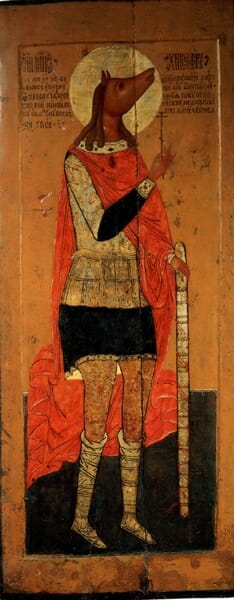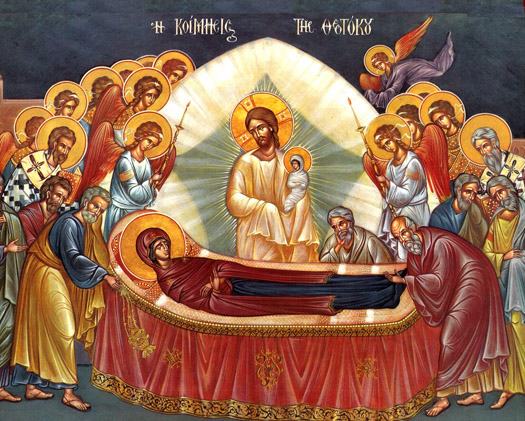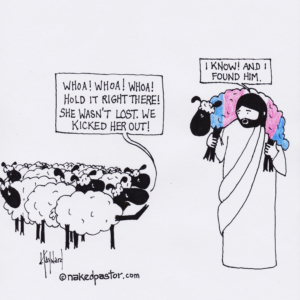Dogs Yes, Gays No
November 1, 2025
Dogs, yes! Gays, no!

A very dear friend of mine, a librarian, has dedicated much of her limited free time and endless care to raising guide dogs for veterans, the blind, as well as others needing loving support and companionship in their daily lives. She was instrumental in making sure that future guide service dogs were integrated into all parts of society, to better serve the humans they would be attending to. One of the numerous ways that she accomplished this was to bring the dogs to the school library to interact with the students and teachers. Having the dogs at school was very popular with students during stressful times, especially exam time, when petting the puppies brought their anxiety levels down considerably. As a dog lover, I relished popping in her office at least once a day to play with the dog of the day. To receive unconditional love from the dogs, especially during difficult days, was just fantastic.
For these reasons, I was pleasantly struck by the recent official communique of the Greek Orthodox Archdiocese announcing that they were “adopting a policy regarding service animals in our churches as a first step to ensuring all parishes are accessible to those suffering from physical disabilities.”[1] The official episcopal decision, posted September 14, 2025, is quite welcome and noteworthy but also raises a few questions. The statement indicates that this is a first step, leaving me speculating if other steps regarding additional ways to welcome those “suffering” will be or were considered to hopefully be included later. Also, the directive specifically only mentions physical disabilities, and I wonder about other “disabilities” such as emotional or mental. Despite these questions, any step to ensure that all people are welcomed into the house of the Lord to worship Christ is certainly a holy task. Interestingly, the bishops at this meeting also had the time and energy to decide that “traditional folk dance festivals” should be advanced to a “national ministry.”[2] A worthy endeavor, I am sure.
While greeting the decision and official step to making parish churches more accessible and welcoming (queue traditional dance music) to those with certain disabilities, one searches in vain for a sincere, open welcome to persons who have not traditionally been welcomed in Orthodox Churches, namely those of us who are LGBTQ. The last “official” statement from the Assembly of Canonical Orthodox Bishops of the USA, to which the Greek Orthodox Archdiocese belongs, was over ten years ago, in 2015, after the US Supreme Court decision to allow same-sex marriages.[3] Using terms such as “strongly disagree, an invention, immoral, unjust, harm, and threaten”, the bishops leave no room for any meaningful acceptance of LGBTQ Orthodox, or those LGBTQ interested in the Orthodox Church, or even the families, friends, and allies of the LGBTQ Orthodox faithful.[4] And yet, in the last 10 years, Greece, as a predominantly Orthodox country, has legally adopted same-sex marriage[5], and war-torn Ukraine is openly discussing allowing for same-sex marriage.[6] And while Ecclesiastical decisions should never be decided by civil governments alone, it should concern the bishops that in nearly 40 countries, same-sex marriage is now legal,[7] and certainly in many of those countries, there is a considerable number of Orthodox Christians who voted for or are in support of these laws. Are the bishops deaf to what their own faithful are experiencing, living, or supporting? And while it is heartening to read about a greater understanding and action to meet the needs of those with physical disabilities by welcoming dogs into Orthodox churches, where is the open and honest conversation, dialogue, thought, and actions with the bishops concerning those Orthodox Christians who are gay or lesbian or transgender, those in same-sex, state-sanctioned marriages, or those same-sex couples raising children? (more…)


 Are you a fan of or afraid of the dark? My husband and I frequently have a “battle of the lights.” Bright lights bother my eyes. Also, I was raised in a time when leaving any lights on in an unoccupied room would elicit a negative comment from my father about the high electricity bill. On the other hand, my husband never met a light he did not want to illuminate, and I frequently accuse him of holding stock in our local electric company.
Are you a fan of or afraid of the dark? My husband and I frequently have a “battle of the lights.” Bright lights bother my eyes. Also, I was raised in a time when leaving any lights on in an unoccupied room would elicit a negative comment from my father about the high electricity bill. On the other hand, my husband never met a light he did not want to illuminate, and I frequently accuse him of holding stock in our local electric company. The recent Olympics in Paris were quite a spectacle. From the unusual opening parade on the Seine River to the amazing story of US gymnast Simone Biles, the Olympics were an impressive competition to behold. Nevertheless, the event was not without its controversies. What struck me, in particular, was the storm surrounding the women’s boxing match and the boxer from Algeria.
The recent Olympics in Paris were quite a spectacle. From the unusual opening parade on the Seine River to the amazing story of US gymnast Simone Biles, the Olympics were an impressive competition to behold. Nevertheless, the event was not without its controversies. What struck me, in particular, was the storm surrounding the women’s boxing match and the boxer from Algeria. The architectural layout of a traditional Orthodox Church is something that I have always loved. Usually, the conventional interior design of an Orthodox church has three main sections, the narthex or vestibule, the nave or main part of the church/temple, and the sanctuary or the altar area. While I imagine that most people do not think much about the vestibule or narthex section of a church, traditionally it is an essential part of the liturgical rites of the Orthodox Church. Those preparing for baptism, the catechumens were to remain in this area and were prohibited from entering the main part of the church. It was also the place penitents were relegated to stand during the Divine Liturgy until the end of their penitential period. Today, many of the divine services and mysteries of the Church, begin in the narthex. For example, baptisms, marriages, funerals, and certain Lenten and Holy Week ceremonies are called to start in the vestibule. Today, in many Orthodox Churches the vestibule is the place to purchase and light candles or find parish bulletins, but rarely is this area given much of a second thought by most Orthodox Christians. The important sections are usually seen as the nave or church proper as well as the sanctuary, behind the iconostasis or icon screen.
The architectural layout of a traditional Orthodox Church is something that I have always loved. Usually, the conventional interior design of an Orthodox church has three main sections, the narthex or vestibule, the nave or main part of the church/temple, and the sanctuary or the altar area. While I imagine that most people do not think much about the vestibule or narthex section of a church, traditionally it is an essential part of the liturgical rites of the Orthodox Church. Those preparing for baptism, the catechumens were to remain in this area and were prohibited from entering the main part of the church. It was also the place penitents were relegated to stand during the Divine Liturgy until the end of their penitential period. Today, many of the divine services and mysteries of the Church, begin in the narthex. For example, baptisms, marriages, funerals, and certain Lenten and Holy Week ceremonies are called to start in the vestibule. Today, in many Orthodox Churches the vestibule is the place to purchase and light candles or find parish bulletins, but rarely is this area given much of a second thought by most Orthodox Christians. The important sections are usually seen as the nave or church proper as well as the sanctuary, behind the iconostasis or icon screen.  Through the generosity of the editors of “Orthodoxy in Dialogue,” we are pleased to re-post a wonderfully sincere and poignant piece entitled “A Gay’s Man Dormition Story”, published on their website on August 15, 2023, by an anonymous source. Please read the full article by following the link to “Orthodoxy in Dialogue” below, following the first paragraph of the work.
Through the generosity of the editors of “Orthodoxy in Dialogue,” we are pleased to re-post a wonderfully sincere and poignant piece entitled “A Gay’s Man Dormition Story”, published on their website on August 15, 2023, by an anonymous source. Please read the full article by following the link to “Orthodoxy in Dialogue” below, following the first paragraph of the work.  One of the things that good teachers know is that there is no such thing as a stupid or wrong question from their students. To suggest to a student otherwise is to immediately shut down the possibility of further learning by the student. Every teacher has encountered numerous instances in class when a student raises their hand and begins with one of these phrases “I know this is a stupid question… OR… I am probably wrong but…” It takes a lot of courage for many students to raise their hand, risking judgment by their teacher as well as their peers, to ask a question that might be perceived by others as a stupid one or the wrong one. To dismiss that student’s question is the complete opposite of what teaching is all about. The Socratic method of teaching, based on asking and answering questions, promotes critical thinking and draws out new ways of thinking and understanding.
One of the things that good teachers know is that there is no such thing as a stupid or wrong question from their students. To suggest to a student otherwise is to immediately shut down the possibility of further learning by the student. Every teacher has encountered numerous instances in class when a student raises their hand and begins with one of these phrases “I know this is a stupid question… OR… I am probably wrong but…” It takes a lot of courage for many students to raise their hand, risking judgment by their teacher as well as their peers, to ask a question that might be perceived by others as a stupid one or the wrong one. To dismiss that student’s question is the complete opposite of what teaching is all about. The Socratic method of teaching, based on asking and answering questions, promotes critical thinking and draws out new ways of thinking and understanding.